Published
- 09:00 am

The Extraordinary Shareholders' Meeting of SIA, which met today under the chairmanship of Federico Lovadina with the participation of 96.1% of the Company's share capital, approved the plan for the merger by incorporation of SIA S.p.A. into Nexi S.p.A.
The completion of the merger is subject to the fulfilment of certain standard conditions precedent for transactions of this type, including the attainment of the relevant authorizations, including that of the competent Antitrust Authority.
The transaction represents a strategic opportunity to integrate the activities of SIA and Nexi, thus creating a new Italian paytech, leader in Europe able to cover the entire digital payments value chain and serve all market segments with the most complete and innovative range of solutions.
Related News
- 08:00 am
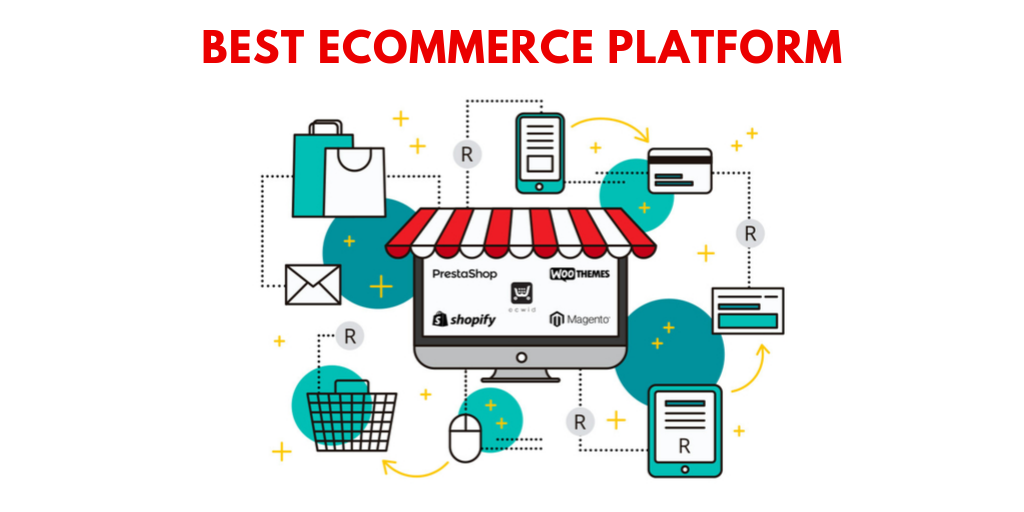
In the digital landscape of 2021, it’s paramount for businesses to have an online presence. Yet, with so many B2B eCommerce platforms available, it can be an overwhelming decision for businesses. To help them make an informed decision, here are five of the most popular B2B eCommerce platforms available in the UK.
Top B2B eCommerce platforms in the UK
- Magento
Originally starting out as a B2C platform, Magento is now one of the more popular B2B eCommerce platforms on the market and is used by businesses ranging from local SMEs to global enterprises.
The leading open-source eCommerce platform is primarily focused on B2C businesses but offers considerable add-ons and extensions for B2B. The platform offers flexibility and scalability, allowing users to choose which features to implement, which causes variation in cost depending on customisation.
- OroCommerce
Recently launched in the UK, OroCommerce is one of few solely B2B platforms and has been designed for midsize and large enterprises. Founded by the people who kickstarted Magento, OroCommerce boasts the same time-tested technologies and principles.
The open-source nature of the product allows Oro to leverage the expertise, feedback and contribution of its ecosystem of partners, developers and customers. This means that the product can be finetuned and innovative in response to adapting to market demands and changes.
Oro is also built on the Symfony PHP framework, allowing the platform to leverage the power of the Symfony community and Symfony product. In addition, open source code makes it easier for the platform to be customised to best suit the needs of any business.
Features include flexible workflows, multiple pricing lists, integrations with third party apps and native integration with OroCRM, which is a multi-channel customer relationship management tool.
- Shopify Plus
Shopify Plus is another popular and successful option, powering over a million online stores. It offers localised customer experiences for international sellers, custom automation flows and integration with Shopify’s apps and partners.
The platform is aimed at enterprise level organisations that are looking for a step up from Shopify’s standard eCommerce platform.
Shopify Plus offers flexible solutions, reaching consumers and businesses with the ability to scale, but the platform is more aligned to the needs of B2C eCommerce models.
- BigCommerce
BigCommerce offers businesses a quick solution for building an online store, with pre-built themes and functionality to allow for a speedy set-up.
Whilst offering solutions for B2B ecommerce, Bigcommerce thrives as an ecommerce solution for low complexity ecommerce models. The pre-built themes may be a major draw for many businesses, but this does mean the customizability is limited.
For smaller businesses, the price is also a major bonus, but the cost of the platform grows alongside order totals, meaning it may not be suitable for growing businesses.
- Microsoft Dynamics 365 Commerce
Microsoft Dynamics 365 Commerce is an omnichannel eCommerce solution that allows businesses to build a website, connect physical and digital stores, track customer behaviours and requirements, deliver personalised experiences, engage with customers across numerous channels.
The platform provides retailers with a modern, flexible and cloud-based retail solution that integrates customer experiences, loyalty programmes and online stores with backend systems such as operations, inventory, and resource utilisation.
This is in addition to specific B2B eCommerce capabilities, which have been built on to the B2C model, including tools to improve B2B account relations, partner management tools, account-based promotions, distributed order management and self-service purchasing.
- Salesforce CloudCraze
Salesforce B2B Commerce Cloud, also known as CloudCraze, is essentially a branch of Salesforce Commerce Cloud tailored for B2B, facilitating an array of eCommerce activities.
This platform came into being when Salesforce acquired CloudCraze, a robust eCommerce tool for B2B transactions. The software is typically designed for businesses that deal with larger and more complex purchases, offering an ideal combination of eCommerce and business CRM.
CloudCraze allows businesses to offer an extensive cross-channel marketing approach to its clients, similar to that of a B2C platform. This will help businesses to improve the overall user experience and build healthy client relationships.
Related News
- 08:00 am
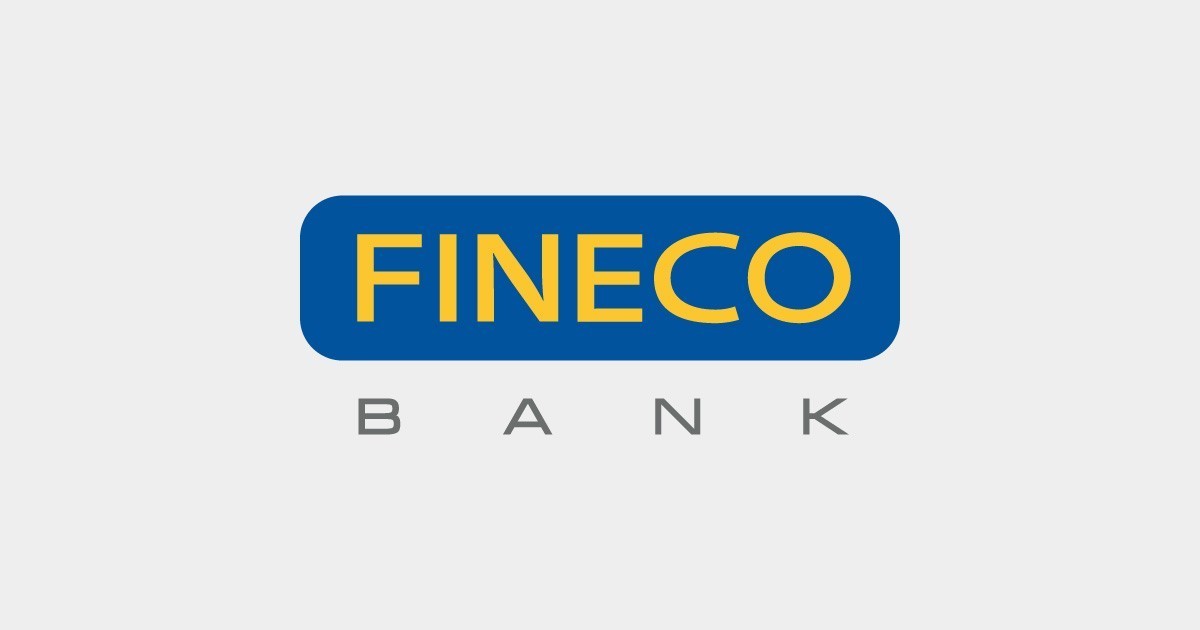
FinecoBank today announces that UK customers will have access to a range of funds offered by Vontobel.
Vontobel is an active investment manager with a global reach and a multi-boutique approach. Its suite of funds covers equity, fixed-income and multi-asset investments.
This latest addition to Fineco’s investment platform follows a string of recent fund announcements made this year including Wellington Management, AXA IM, Candriam and Ninety One.
Paolo Di Grazia, Deputy General Manager, Fineco: “We are determined to continue adding more internationally-recognised high quality fund managers to Fineco’s investing platform. For this reason, we are thrilled to have partnered with Vontobel and to further diversify the range of leading-edge solutions available to our customers.”
Sheridan Bowers, Head of UK and Ireland, Vontobel Asset Management: “We are delighted to have partnered with Fineco. At Vontobel, we are committed to meeting our client’s needs and actively managing their assets with the utmost care. We look forward to welcoming Fineco customers to our collection of award-winning funds and helping them achieve their long-term financial goals.”
About FinecoBank
Launched in 2017 in UK, FinecoBank, the multi-currency bank and one of the most important FinTech banks in Europe, has built an integrated business model by offering customers its One-Stop-Solution: it offers banking, trading and investment services from a single account through innovative transactional platforms developed with proprietary technologies. Fineco represents a new way of banking, a smart way to invest money.
Fineco’s mission is to simplify customers’ lives when dealing with financial services, and has developed a very powerful yet user-friendly platform. Learn more about us on finecobank.co.uk.
Related News
- 09:00 am
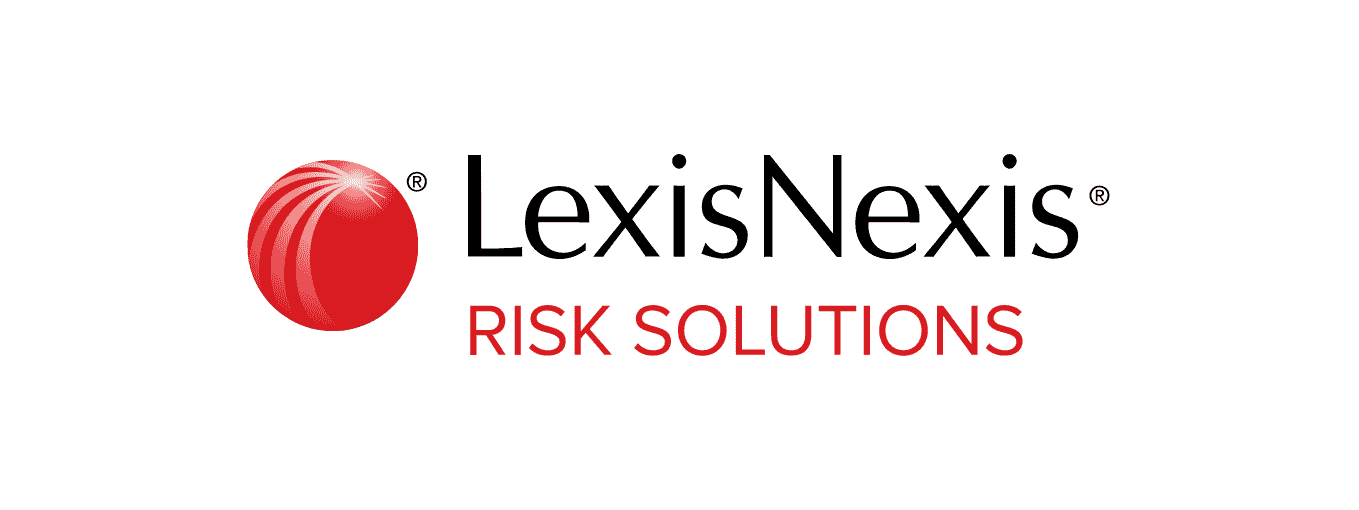
LexisNexis® Risk Solutions, the global data and analytics provider, today releases its latest report Cutting the Cost of AML Compliance, which reveals a conservative estimate for AML compliance costs across the UK financial services sector reaching almost £29bn per year.
This figure is equivalent to more than half the 2020 UK defence budget (£53.3 billion[1]), and a significant proportion of the estimated £37 billion the NCA† estimates that organised crime costs the UK each year.
The research, produced in partnership with leading agency, Oxford Economics, is a comprehensive AML cost analysis study helping to uncover widespread inefficiencies in AML compliance processes within the UK financial services sector.
Avoidable cost
The findings reveal that regulatory burden, rather than a rising criminal threat, is the primary cause of the growth in compliance costs, as firms struggle to keep up with ever-increasing and changing regulatory requirements. The implementation of the Fifth Anti-Money Laundering Directive (5MLD) alone, is estimated to be costing the average UK financial institution around three quarters of a million pounds[2].
Changes in data privacy requirements, customer demand for faster payments and increasing geo-political risks were all cited as key external drivers of increased compliance costs.
Rising costs are compounded by significant AML inefficiencies, the report found, including data quality, system failures, gaps in IT infrastructure, ineffective internal tools and outdated technologies.
Adding unnecessarily to the burden, the report also found that firms are creating more work for themselves by erring on the side of caution, as a consequence of a fear of regulatory repercussions, if something is missed.
Steve Elliot, Managing Director, Business Services UK & Ireland at LexisNexis Risk Solutions commented on today’s findings:
“This report appears to show that, under the strain of increasing regulatory burden, firms are spending time and cost on fulfilling their short-term compliance requirements and are tending to throw people at the problem, rather than investing in technology, data and analytics, which could bring about longer-term and more transformational benefits.”
Time for technology
Diving deeper, today’s research reveals that over half (53%) of compliance budgets are spent on processes required to onboard new clients, such as Customer Due Diligence (CDD) checks, remote ID & verification checks and risk assessments, driven in part by the shift in demand for online services fuelled by successive lockdowns. A further 14% of budget is consumed by investigations and evidence gathering relating to enhanced due diligence checks.
Whilst alert investigations account for only around 6% of AML spend, the resource burden is high, as another LexisNexis Risk Solutions report4 in 2017 revealed, firms spend more than 20 hours and 3.7 members of staff remediating even standard risk customers, 90% of which turn out to be false positives.
If unaddressed, today’s research reveals that the rapidly increasing cost of compliance to firms is expected to continue to rise in the next three years, with predictions putting the total cost at over £30bn by 2023.
Added to that, financial institutions expect the UK’s exit from the European Union to result in more regulation2, fuelling an even steeper AML compliance cost rise in the coming years.
Steve Elliot, LexisNexis Risk Solutions concluded:
“Tech-enabled big data and analytics tools can help businesses transform the detection of financial crime and shift their focus towards prevention rather than detection. Good quality data alone can significantly transform a firm’s AML process effectiveness by reducing data silos and providing a far clearer picture of the risk a potential customer presents, reducing false positives and associated remediation tasks in the process, which as this report highlights, accounts for a further fifth of firms’ AML costs.”
“Over-reliance on people is expensive and clearly unsustainable in the long term, however the answer isn’t to reduce human resource, it’s to employ technology to do the repetitive tasks that can then free up people’s valuable knowledge to be deployed where it’s most effective, applying a robust and regulator-approved risk-based approach that will really make a difference to the effectiveness of AML activities.”
“It’s reassuring that firms clearly support and see the benefits of introducing technology into their AML processes, with two in five firms planning data quality initiatives in the coming year and a similar number planning to implement new compliance software. But it’s also apparent that what’s holding the sector back from more widespread change is reassurance from regulators that the technology they’re adopting is fully endorsed. Today’s report should be a rallying call for UK regulators to combine efforts and work together with the industry to ensure that the right processes, tools and technology is in place to stand a chance of effectively detecting and deterring money laundering in all its forms. As part of this, there needs to be a deliberate move towards a far more considered risk-based approach to AML that draws the best elements of big data, technology-assisted processing and human knowledge and experience together to truly understand and prevent the constantly evolving criminal threat.”
Related News
- 06:00 am

- User data from Yolt,* the award-winning smart money app, reveals consumers have spent on average 16% less since lockdown restrictions lifted on the 12th of April, as economic uncertainty continues, and people remain cautious about their spending as they come out of lockdown.
- However, people spent 9% more on eating out in the last two weeks of May, following the easing of restrictions on the 17th, when compared to the same period in March.
- In contrast, grocery spending decreased by 7%, as consumers started to shop less for home and started eating out.
- Takeaway spending also decreased in that period by 5%, possibly as a result of people slowly returning to eating out instead of ordering in, given the easing of restrictions.
- Shopping is an area that has seen a small uptick (4%) in the average amount people have spent since non-essential retail opened on 12th April, when compared to the weeks in lockdown before.
- Despite being able to leave the house, and an 18% rise in the number of transactions associated with transport, the amount spent on transport decreased by 19%, indicating that people might be travelling more but making shorter, more local trips.
- Lockdown saw many increase their savings, however as restrictions lift and the economy opens up, people have been saving more frequently but putting less aside. The amount put into savings fell by 28%, and overall deposits increased by 17%.
Pauline van Brakel, Chief Product Officer at Yolt says “The past year of lockdown restrictions has undoubtedly had an impact on our food shopping, dining, and savings habits, and with each change we are likely to see more shifts. Our data suggests that consumers are looking to spend smarter and reduce their outgoings in light of broader economic uncertainty. Even as lockdown eases, we anticipate people will want to continue to spend cautiously whilst making the most of their new freedoms.
“The financial impact of the pandemic has been far reaching and effected some people more negatively than others. As we move towards returning to normal it has never been more important for people to be smart with their money, and to strive to find new ways of balancing spending and saving. Simple steps like reviewing your regular expenses such as energy bills, grocery shopping and subscription services can be a good way to highlight areas where you could cut back on spending. At Yolt, our recently launched evolution of the app is designed to help you manage your finances and keep a close eye on both your spending behaviours and your savings habits.”
Related News
- 04:00 am
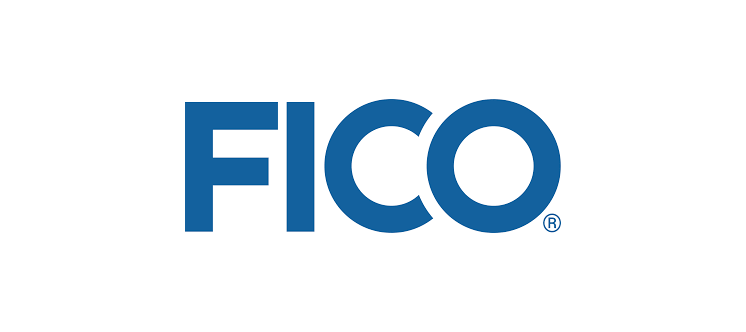
Highlights:
- UK cuts fraud losses by 7% (£46 million) year-on-year
- Denmark and Hungary help support overall reduction of card fraud in Europe
- Norway faced biggest scale of attacks with 172% year-on-year increase
- France, Germany and Poland also saw card fraud levels increase
In a year that presented fraudsters with new opportunities to exploit consumers, UK financial institutions continued to lead the charge across Europe in thwarting the criminals. New data from FICO’s updated European Fraud Map shows that the UK achieved the greatest fall in card fraud monetary losses, dropping 7 percent and £46 million year-on-year.
However, other nations among the 18 European countries studied did not fare as well. Overall, card fraud losses in these countries was reduced by €62M.
For more information, visit https://www.fico.com/europeanfraud
“Fraudsters are constantly scanning for access to poorly protected accounts and opportunities to manipulate transactions and this is what made 2020 such a challenge,” said Matt Cox, vice president for financial services in EMEA at FICO. “Fraud teams would have faced wave after wave of sophisticated COVID and Brexit scams, which makes the success of UK financial institutions – protecting Brits’ finances – even more impressive.
“2020 has been an incredibly challenging year across the globe, with a rapidly changing mix of customer demands, a volatile staffing and servicing model, and a need to drive transformation quicker than ever before. These conditions, in addition to new attacks from fraudsters fuelled by COVID and Brexit, conspired to challenge fraud prevention teams at banks and other financial organisations.
“Despite this ever-changing set of priorities and demands, several countries across Europe significantly improved their fraud prevention performance, contributing to a second consecutive year of reduction in the losses experienced through fraud. And this is crucial for consumers who want the peace of mind that the institutions in which they trust their finances are doing all they can to stop the fraudsters. Whilst this is an incredible success story in CNP fraud, we need to remain vigilant of the growth in in scams, both in the plastic and payments space.”
UK Led European Fraud Reduction
While Europe enjoyed a sizable £54M drop in fraud loss for 2020, this was primarily driven by two countries, accounting for a reduction of £78 million between them. The United Kingdom achieved a £46M reduction (7 percent year-on-year); Denmark recorded a €21M decrease (48 percent).
“After achieving the largest single reduction of any European country in 2019, the banks of the UK have repeated this, with the best net reductions of the 18 countries in this report for the second year running,” noted Toby Carlin, a senior director of fraud consulting at FICO. “In an incredibly challenging year, only five of the 18 countries analysed by FICO achieved a reduction in card fraud.”
Hungary also made significant progress. It achieved the third best reduction in fraud loss of the studied countries, reducing fraud levels by €2M (39 percent).
Norway Sees Massive Rise from Phishing Attacks
Unfortunately, fraud losses continued their increases in France (€6M higher than 2019), Poland (€4M higher) and Germany (€3M higher). There was also a major attack in Norway, which led to an increase in fraud losses from around €8 in 2019 to around €22 in 2020, a rise of 172 percent, the largest rise of all the countries studied.
“An impressive multi-industry response to tackle this new attack is already showing positive signs of improvement,” added Carlin. “Much has been done in the region to combat this threat, both by our banking partners and the mobile phone operators, with real success. The worrying sign here is that the fraudsters have found a hybrid attack vector for the historically ‘digital savvy’ market.”
The Norway attacks centre around large-scale phishing and smishing efforts, designed to introduce a scam which ultimately ends in fraudulent Card Not Present (CNP) transactions.
Phishing and smishing attacks come almost exclusively from data compromise and result in several point attacks. The ability to identify these events effectively and early enough to prevent the attack takes a collaborative approach. FICO® Falcon® Compromise Manager is designed to flag fraud attacks and data compromise significantly earlier, helping banks better protect customers as well as minimise losses. Central to the solution is the collaboration it enables between the banks to address the challenge.
“Whilst it is incredibly positive for so many countries to have made gains through such a challenging period, with Turkey, Spain and the Czech Republic all showing a relatively flat trend through 2020, more needs to be done across the other European states to drive a truly collaborative reduction in all areas,” concluded Cox.
Related News
- 01:00 am

- Origin in partnership with Clearstream launches instant-ISIN feature for Eurobonds (i.e. “XS” ISIN codes); the service will be rolled out across the issuer base over the course of the summer
- Open-source data standard Airbrush V2 adds new features; Clearstream and Paying Agents can now receive transaction data via Airbrush; digital listing at the Luxembourg Stock Exchange launched earlier this year is also compatible with Airbrush V2.
- Market-first, truly open-source term sheet template available for free use by all fixed-income market participants to foster standardisation of bond issuance
Origin Markets, the London-based fintech digitising debt capital markets, is launching an instant-ISIN feature, created in collaboration with Clearstream, which enables immediate, integrated ISIN code allocation for Eurobonds. ISIN codes are provided by Clearstream Banking S.A. and will support Eurobond issuance (i.e. “XS” ISIN codes). The structured data from the approved termsheet is validated against ICSD requirements directly on Origin platform, allowing codes to be provided instantaneously and accelerating a process that can sometimes take hours.
Airbrush: enhanced data standard for bond issuance
The service launch coincides with the release of the next iteration of Airbrush, an interface data standard that aims to act as a universal language for all bond issuance market participants. Airbrush v2 covers a broader set of data, delineates between the data required for ISIN allocation at termsheet completion and those required for settlement and enhances scalability by incorporating a nested structure. The new version was developed in close consultation with industry partners.
As first-movers, Clearstream can now receive transaction data via Airbrush. Origin and the Luxembourg Stock Exchange have also ensured compatibility of the digital listing service with Airbrush V2.
Raja Palaniappan, CEO and co-founder of Origin, said: "Today is a big day for Origin as we release our instant-ISIN feature with Clearstream. Dealers and issuers have been calling out for faster code allocation for a long time, and we are pleased to be able to offer that to our customers going forward. We are especially thrilled to release the specs for Airbrush v2, which drives both our instant-ISIN feature and our digital listing API with the LuxSE. These are just two examples of post-trade efficiency that is possible when the market adopts a universal data standard, and we are pleased to see the momentum Airbrush has already gained. In launching these new features and providing free access to these solutions, we hope to catalyse and support industry-wide innovation. Collaboration and knowledge-sharing is invaluable in achieving this.”
Guido Wille, Head of Eurobonds Business at Clearstream, said: “The Instant-ISIN feature is a major step for the whole Eurobonds market. As the market has grown tremendously not only during the pandemic, efficiency and automation are becoming indispensable to handle large volumes in a scalable way. We are glad to offer our clients leading-edge issuance services together with Origin.”
Open-source term sheet
One feature of the new Airbrush release is a market-first, truly open-source term sheet template for Eurobonds. It is available for free use by all fixed-income market participants to foster standardisation of bond issuance. The term sheet will be available in two forms:
- A marked-up version created for use by dealers, issuers, law firms, and others annotated with directions to aid in the completion of the form
- A machine-readable version, marked-up using Jinja, the open-source templating language created for Python. As Jinja and Python are both open-source, anyone can test the termsheet using a freely available Jinja templating library online
Related News
- 05:00 am
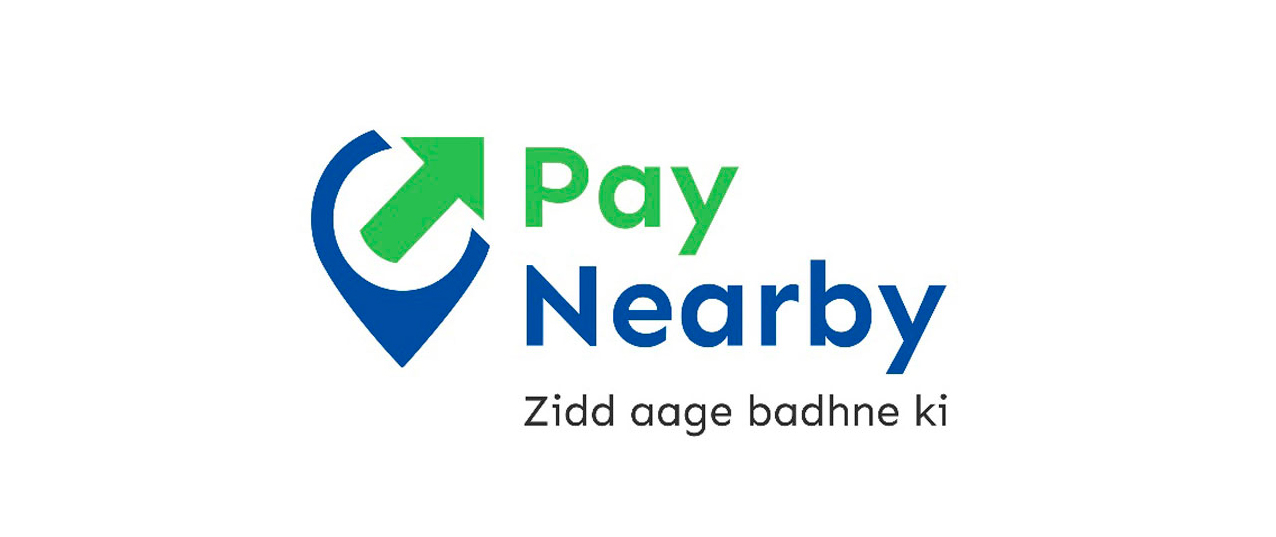
PayNearby, India’s leading branchless banking and digital payments network, has been awarded as the 'Dream Company to Work For' at the prestigious 19th Asian HR Leadership Awards, 2021. The awards were presented at a virtual ceremony held on June 2021, attended by representatives from leading corporations, celebrating the achievements of all the winners. The Asian Leadership Awards recognize outstanding business leaders and organizations for their commitment to excellence, developing best practices, and innovative strategies.
PayNearby, through its trusted network of 15+ lakh retailers across 17, 500+ PIN codes, has been instrumental in ensuring undisrupted financial services to the masses, bridging the urban-rural divide. Their BC network, known as ‘Digital Pradhan’, bring essential financial services at the last mile without which the population would have been left on the fringes of the society. Aiding PayNearby in this inspiring journey are its people. With about 72% of its colleagues belonging in the age group of 21 - 35 years of age, PayNearby is a young company driven by the passion for creating a change by driving the agenda of financial inclusion in the country.
PayNearby was evaluated and awarded based on the organization’s operational performance, innovative technology and commitment to the development of its people. PayNearby is an equal opportunity workplace that thrives on merit and rewarding performance. The company facilitates inclusive interactions, objective decision making and creates equal opportunities for everyone. Additionally, the company empowers its women leaders equally and is known for its diversity and inclusion that prospers on merit and performance. PayNearby is devoted to ensuring that its people have fun while they go about scaling new heights and achieving new milestones.
To top it all, PayNearby’s efforts to ensure the wellbeing of its people during the pandemic, focus on nurturing an inclusive workplace, digitalization of HR services, and a unique approach in fostering a learning culture and upskilling effort were highly commended. The HR has been consistently playing a critical role in driving workplace culture by practicing humility and empathy towards the development of the teams, connecting diverse people to a common purpose, adapting to uncertainty, and fostering trusting relationships within and beyond teams.In the post COVID-19 era, where there was an increasing need to engage its people online and offline, PayNearby designed various wellness programmes, counselling, awareness and digitalized services to empower its people in every way.
PayNearby believes that success is delivered as a team and the people are its most valuable assets. With growing operations across the country and PayNearby becoming a pure-play digital and financial services operator at the last mile, the company looks to be led by talent best positioned to become its enablers. PayNearby aims to nurture a pool of future leaders with a strong understanding of the industry landscape along with in-depth functional skills.
Acknowledging the win, Anand Kumar Bajaj, Founder, MD & CEO, PayNearby said, “We, at PayNearby, are grateful and honoured that we received the 19th Asian HR Leadership Award to become a ‘Dream Company to Work for’. This is a proud moment for us as we continue to innovate our HR practices to attract and retain the right talent and create an outstanding work environment for all. We live by the philosophy that culture eats strategy for breakfast any day. And, we are committed to creating an engaging culture for our people to ensure that life at PayNearby is always fun and fulfilling. At PayNearby, no voice is unheard, no suggestions are ignored.
Our people are our most valuable assets and we pledge to go the extra mile to ensure their growth and progress. Even during the pandemic which posed the ultimate test of resilience for business organizations globally, our HR team was dedicated to delivering the highest level of service to the PayNearby family so that they could serve our retailers and customers better. PayNearby is humbled by this prestigious award and for the recognition it signifies. The award means that we are doing the right thing at the right time in the right way in sync with our Zidd Aage Badhne Ki.”
Related News
- 01:00 am

ALPIMA, the SaaS platform for investment management and product design has been chosen by BBVA for the scaling up of their Quantitative Investment Solutions (QIS) business.
ALPIMA is a B2B technology and advisory firm serving banks, asset managers and wealth managers globally. Its mission is to use the latest advances in data science and technology to help its clients build investment strategies with conviction and empower them to deliver personalisation at scale.
Offered as an enterprise version of its cloud-based service, the ALPIMA platform will be delivered on a white-label basis and configured specifically to meet BBVA’s needs and exact requirements.
Pierre Mendelsohn, ALPIMA’s CEO, comments: “We are delighted to be working with BBVA to help them serve their clients in a new way. We are inspired by their focus on innovation and client-centricity and look forward to helping them grow their QIS business in the years ahead.”
Pablo Suarez, Head of QIS Business at BBVA comments: “We are very pleased to work with ALPIMA. Their modular platform offers the flexibility and power required to create differentiated investment strategies and provide the service we want to offer our clients in this competitive and fast-moving market. This is a step forward on the path towards the strategic transformation of our global equities business”
ALPIMA’s cloud-native platform combines cutting-edge technology with deep industry expertise to help institutional clients design personalised investment strategies, build portfolios, manage money, and serve their customers.
Related News
- 06:00 am

Worldline the European market leader in payment and transactional services, is committed to an ambitious Corporate Social Responsibility (CSR) strategy, aiming to achieve growth in a more sustainable way. As part of those efforts, Worldline encourages people to show generosity to the least fortunate in our society via its payment solutions.
With its range of positive-impact solutions, Worldline collected 25,387,335 donations in 2020 totaling more than €339 million for community charities and organizations. These micro-donations[1], made via the payment terminals of Ingenico (now part of Worldline), further strengthen the Group’s efforts in this area. By becoming the first supplier of payment solutions to incorporate donations into its point-of-sale payment terminals, Ingenico has been a pioneer in its market, providing its users with a new donation experience.
Increase in micro-donations in 2020
In 2020, there was a rise in micro-donations made using Ingenico solutions, despite consumer spending being seriously affected by the macroeconomic context. The increase confirms that embedded generosity solutions are very popular among consumers. This innovation solution gives consumers an easy and secure way of making donations and provides a valuable new income stream for charities, allowing them to increase the support they give to the least fortunate in our society.
Micro-donations collected via Worldline solutions: key figures in 2020
- France: 11,348,806 micro-donations totaling €3,289,171. The number of micro-donations was stable compared with 2019, but the total amount collected rose by 22%.
- United Kingdom: 704,006 micro-donations totaling €310,611.
- Spain: 6,029,337 micro-donations totaling €1,197,192.
In 2020 in Europe, Worldline and its three partners - microDON (France), Pennies (United Kingdom) and Worldcoo (Spain) - collected €4.8 million for charities via their solutions (up 19% compared with 2019) through 18 million micro-donations (up 7% compared with 2019).
Micro-donations via payment terminals: an important way for consumers to support their communities in the future
The concept of micro-donations via payment terminals is to offer a simple, reliable and secure way of giving. When paying for a purchase with a bank card at a participating retailer, the consumer is invited to add a few cents (or pence) or to round up his or her purchase to the nearest euro (or pound) for the benefit of a charity and the projects that it supports. Through this simple donation method, the solution fosters and facilitates civic engagement among many consumers. In fact, it has been reported that two thirds of French people would be willing to make donations in this way, as confirmed by the high participation rate in stores[2].
In addition to micro-donations via payment terminals, Worldline has for more than 20 years been helping community charities and organizations raise more money by providing them with its positive-impact payment solutions, and particularly its online payment platforms.
In 2020, its online payment solutions resulted in 25,387,335 donations totaling more than €339 million.
Worldline intends to continue its social engagement efforts by using its technological expertise to support charities and organizations working for the public interest in Europe.
Sébastien Mandron, Worldline’s CSR Officer, said: “In our societies, which are heading towards an advanced stage of digitalization in which more and more payments are cashless, it is vital that electronic payment solutions evolve to allow as many people as possible to show their engagement and generosity. Worldline firmly believes that a payment should be an act that positively impacts society as a whole, and we intend to continue our efforts to encourage initiatives that support communities. Our aim is to encourage, facilitate and ensure the security of donations via our solutions, by giving our clients the opportunity, as part of their day-to-day lives, to support projects that benefit the community as a whole.”









